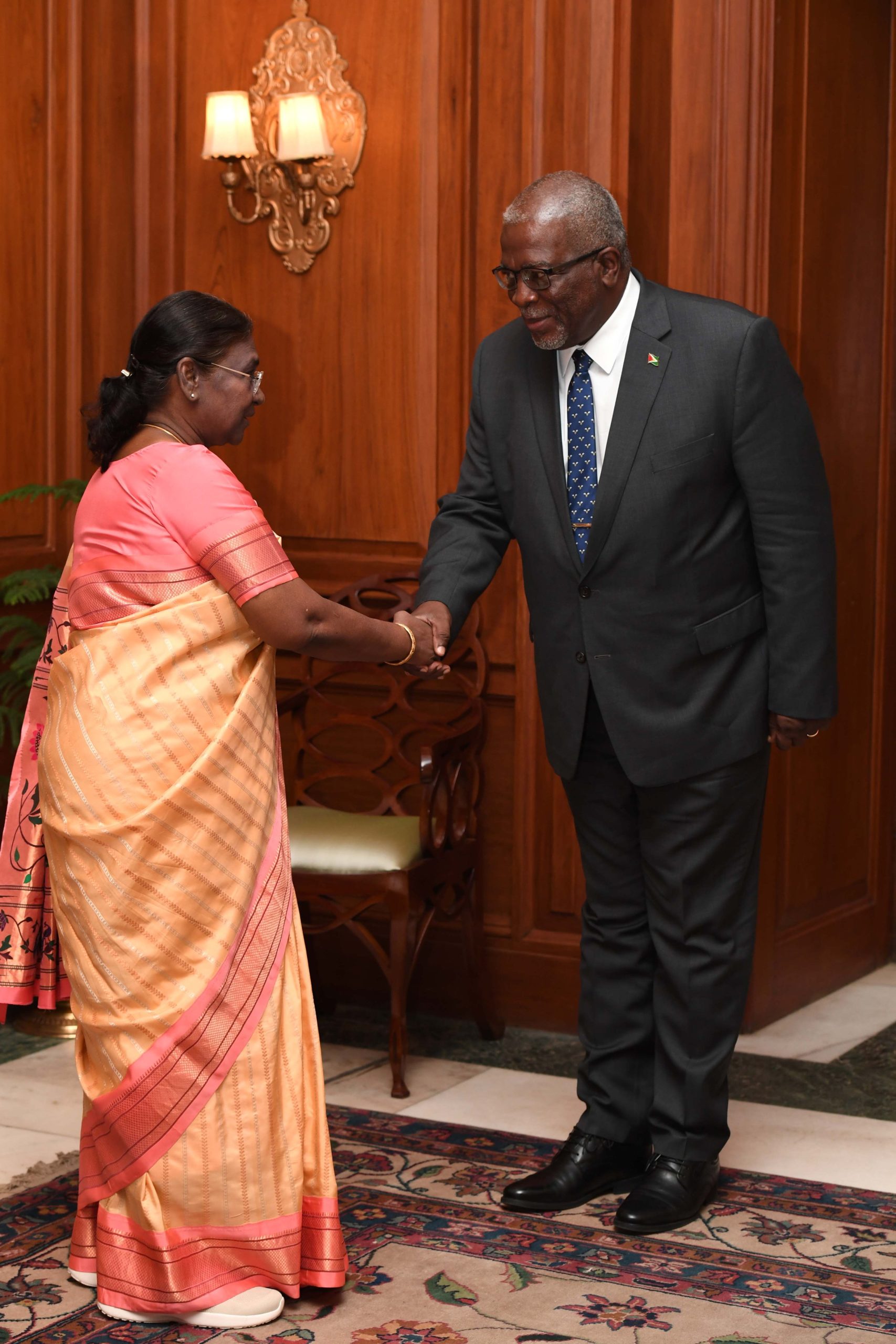Prime Minister Brigadier (Retd.) Mark Phillips of the Cooperative Republic of Guyana, currently on an official visit to India, met with President Droupadi Murmu on Wednesday. The meeting highlighted the deep historical, cultural, and linguistic bonds shared between the two nations.
President Murmu warmly received Prime Minister Phillips and his delegation, stressing the importance of broadening bilateral trade and exploring collaborations in Ayurveda, bio-fuels, and agriculture, with a particular emphasis on millets. Addressing mutual concerns regarding climate change and food insecurity, the President emphasized the potential for joint initiatives in these critical areas.
President Murmu commended Guyana’s recent assumption of the rotating presidency of the Caribbean Community (CARICOM) and the United Nations Security Council. She underscored the shared commitment of both nations to advocating for reformed multilateralism, especially as prominent members of the Global South. Furthermore, she praised Guyana’s dedication to climate action, green energy, and sustainable development.
During his visit, Prime Minister Phillips also held discussions with External Affairs Minister S. Jaishankar to explore partnerships in the fields of economy, energy, security, and development cooperation. The leaders exchanged perspectives on CARICOM and the United Nations, further solidifying diplomatic ties.
CARICOM comprises 15 member countries and operates on a rotating chairmanship every six months.
Prime Minister Phillips’s visit is expected to bolster the multifaceted relationship between India and Guyana, as evidenced by ongoing dialogues and cooperation across various sectors.
In January, a significant Memorandum of Understanding (MoU) was signed between India’s Ministry of Petroleum and Natural Gas and Guyana’s Ministry of Natural Resources. This MoU encompasses the entire hydrocarbon sector value chain, demonstrating a strong commitment to collaboration in areas such as crude oil sourcing, exploration and production (E&P) sector participation, refining, capacity building, trade, and regulatory policy frameworks.














